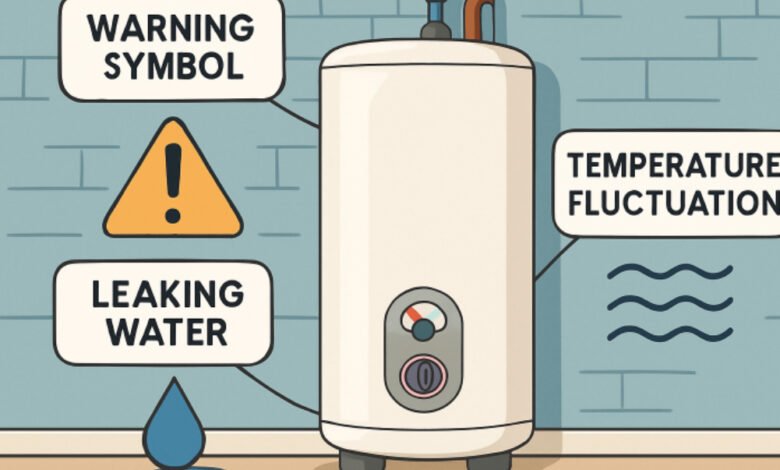When to Call a Professional for Water Heater Repairs

Introduction
Knowing when to seek expert help for water heater issues can prevent costly damage and ensure reliable performance. Warning signs include inconsistent water temperature, unusual noises, leaks, or rusty water. While minor maintenance can be handled at home, persistent or severe problems require professional attention. Skilled technicians can accurately diagnose issues, perform safe repairs, and extend the unit’s lifespan. Timely service restores efficiency and safeguards your home, helping you avoid disruptions and unexpected expenses related to water heater failure.
Recognizing the Signs of Water Heater Issues
Water heaters are crucial in providing comfort at home, supplying the hot water for showers, cleaning, and cooking. Over time, however, these appliances may develop issues that affect their performance and reliability. Early detection of problems safeguards your daily routines and prevents more severe and costly repairs later on. Staying informed about when to seek electric water heater services in Lehi is vital to ensuring uninterrupted hot water and maintaining the value of your property.
Attention to warning signs can extend your water heater’s lifespan and help you avoid unnecessary inconveniences. Many malfunctions start small but can quickly escalate if left unaddressed. Understanding these red flags allows you to act proactively and seek professional assistance when necessary.
If you’re not sure whether you should handle a repair yourself or call in a professional, recognizing the common symptoms of water heater issues can guide your decision. From fluctuating temperatures to odd sounds and leaks, each sign points to a specific problem that may require expertise beyond a typical DIY fix.
Failing to maintain your water heater can ripple effect, impacting water quality, your home’s plumbing infrastructure, and your monthly energy bills. You can find additional information about troubleshooting water heater issues and general home maintenance through reputable resources.
Inconsistent Water Temperature
Experiencing sudden shifts in water temperature during a shower or while washing dishes is one of the first signs that something might be wrong with your water heater. These fluctuations often stem from a malfunctioning thermostat, failing heating element, or significant sediment accumulation inside the tank. If troubleshooting basic settings doesn’t resolve the problem, it’s wise to enlist a technician who can safely assess and repair internal components.
Unusual Noises
Water heaters are generally quiet, so hearing popping, rumbling, or banging noises should raise immediate concerns. These sounds are typically associated with mineral deposits and sediment collecting at the bottom of the tank. Over time, this build-up insulates the water from the heating element, reducing efficiency and forcing the heater to work harder. Regular flushing helps prevent sediment accumulation, but a professional cleaning or further inspection may be needed if noises persist.
Discolored or Foul-Smelling Water
If your hot water appears rusty or has an unpleasant odor, it may signal corrosion inside the tank or bacterial contamination, especially in older systems. Corrosion can weaken the tank structure, leading to leaks or even tank failure. Addressing water discoloration quickly with the help of a plumbing expert can preserve both water quality and the longevity of your system. For more detailed guidance, refer to resources from organizations like the U.S. Department of Energy on water heater efficiency standards.
Leaks Around the Water Heater
Pooling water near your heater’s base indicates a serious problem. Leaks may originate from loose or deteriorating connections, a defective pressure relief valve, or even a cracked tank—none of which should be ignored. Unchecked leaks can cause structural damage to your home’s floors and walls, and create a breeding ground for mold and mildew. Immediate service from a licensed professional is crucial to limit water damage and restore system safety.
Reduced Hot Water Pressure
Noticing a decrease in hot water pressure is often a result of mineral deposits clogging the pipes or the heater’s internal components. Persistent low pressure can make everyday tasks more challenging and may indicate larger issues with your home’s plumbing network. Routine maintenance, like tank flushing and pipe inspection, can prevent this problem, but a professional plumber can quickly assess and resolve complex clogs or obstructions.
When to Call a Professional
Homeowners can resolve some water heater problems—such as relighting the pilot or adjusting the thermostat—but certain situations demand expert intervention to protect your household’s safety and the long-term functionality of your unit:
• Persistent Leaks: A qualified professional should always handle water leakage, as ongoing moisture can lead to structural damage and mold growth.
• Gas or Electrical Concerns: Detecting a gas odor, electrical burning smells, or visible wiring issues requires immediate attention due to the risk of fire or explosion.
• Complete Lack of Hot Water: When there’s no hot water at all and the circuit breakers or pilot light are intact, you need an expert diagnosis to address potential component failures or system-wide malfunctions.
Preventive Maintenance Tips
Taking preventive steps helps maximize your water heater’s efficiency and functional lifespan. Consistent but straightforward maintenance can save you from unexpected breakdowns and costly replacements:
1. Annual Inspections: Arrange for a qualified plumber to evaluate your water heater yearly. These inspections can reveal minor issues before they worsen, helping you avoid emergencies.
2. Flushing the Tank: Draining your water heater annually removes accumulated sediment, reduces strain on the heating element, and maintains optimal performance.
3. Checking the Anode Rod: The anode rod attracts corrosive minerals in the tank, protecting the lining. Monitoring and replacing the rod every 2-3 years prevents premature rusting and extends the unit’s service life.
Conclusion
Proactively managing your water heater by recognizing the warning signs of trouble and scheduling regular maintenance ensures consistent performance and a long-lasting system. Knowing when to call a professional can save you from unnecessary expense, property damage, and discomfort. Regular tune-ups and timely repairs protect your investment and contribute to the safety and well-being of your entire household.
For additional resources on water heater troubleshooting and repair strategies, consult this comprehensive guide by Angi. In this article, Bob Vila also provides useful tips on when to seek professional repairs.







